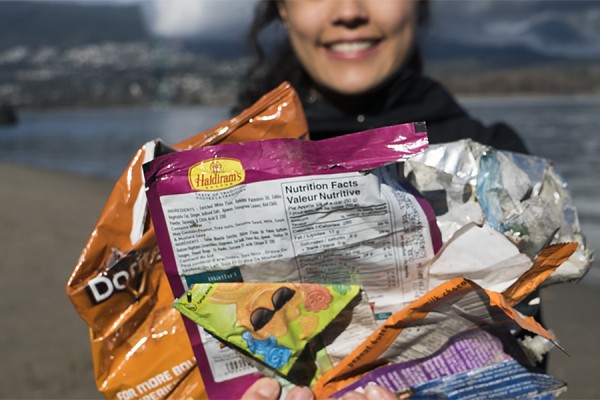 Shane Peelar, a doctoral student of computer science, displays a sample machine part created by three-dimensional printing.
Shane Peelar, a doctoral student of computer science, displays a sample machine part created by three-dimensional printing.
Computer science researchers are working to solve industrial 3D printing challenges by writing advanced computer code.
PhD student Shane Peelar (BSc 2014, MSc 2017), along with his supervisor Luis Rueda, received an Ontario Centres for Excellence (OCE) Talent Edge Program fellowship to create an intelligent system that supports additive manufacturing and machining — known as hybrid manufacturing — for industry partner CAMufacturing Solutions Incorporated.
Additive manufacturing refers to the 3D printing technology that produces, layer by layer, three-dimensional machine parts. The method requires sending digital data to a machine which then builds the part, but Peelar says there is a big challenge is getting the engineering workstation computers, often found in machine shops, to handle the large amounts of data required in additive manufacturing.
“The computational requirements of additive manufacturing for Computer-Aided Design/Computer-Aided Manufacturing or CAD/CAM software are a lot bigger than traditional methods — the datasets are very large and more suited to be performed on super-computers than PCs, and it is not uncommon for companies to want to run these programs on older hardware, computers that are four or five years old,” says Peelar.
“We need to design scalable algorithms that can run and perform on older and newer hardware to allow additive manufacturing operations to be performed in a reasonable amount of time because companies don’t want this process to take eight hours; they want the software to run and produce parts in real time.”
CAMufacturing Solutions president Bob Hedrick says his company develops CAD/CAM software for companies that use 3D printing in conjunction with traditional methods like casting or welding in industrial manufacturing.
“This is so cool because it is a brand-new manufacturing process,” says Hedrick. “People have been machining, casting and forging for hundreds of years, where artisans and craftsmen taught each other — but this technology is coming directly from academic research, from the high-end down.”
His company provides software for various types of manufacturing industries to build actual parts, not just plastic replicas.
“These are real machine tools, complex tools you can put right onto a robot to start working in the shop,” Hedrick says. “We work with all sorts of industries — automotive, military, medical, mould shops, and aerospace companies. There is no end to the application of this.”
These parts can be expensive to make. If they aren’t structurally sound, they could result in extensive damage, so computer programs run modelling first.
Peelar says in addition to a program running in a timely manner, he is also training the machine model to learn from past experience.
“By training the machine model, using human operator knowledge, then like a chess program the model should start to recognize defects as well as things that are working well,” he says.
“Eventually the model will suggest areas for improvement and human operators can confirm if this is true, which will train the model, after several intervals, until eventually it works on its own to solve problems with reasonably high effectiveness.”
According to Dr. Rueda, this is a great opportunity to shorten the bridge between advanced manufacturing and computational approaches that use artificial intelligence and machine learning in a way to understand real life phenomena and how to deliver the right approach for guiding industrial tools like these.
“This kind of technology, and the solutions being developed by CAMufacturing, are fascinating, unique and globally recognized,” Rueda says. “Likewise, this project is a great opportunity for collaboration between the university and the fast growing industrial sector in the region.”
Hedrick says the solutions coming out of collaborating with UWindsor researchers are advanced and impressive.
“We couldn’t do this type of work without academic researchers,” says Hedrick. “We work with a lot of large companies that are manufacturing equipment, and the product being developed here is keeping pace with what these companies are doing right across the globe.”
The academic and industry research and development project runs for 16 months.
Sara Elliott





